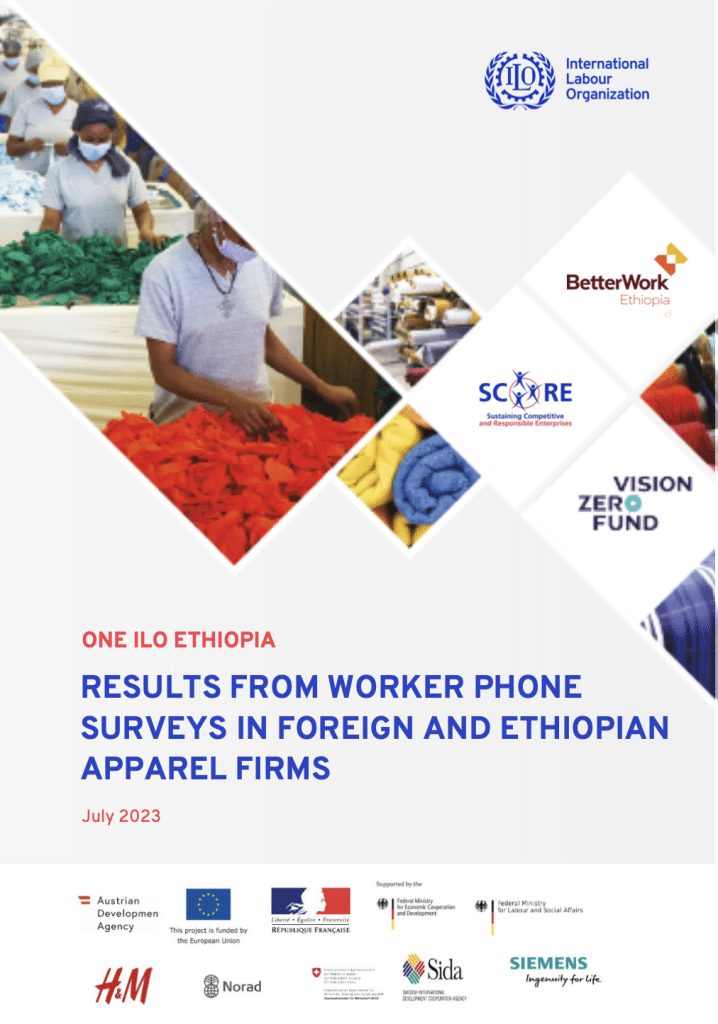This brief presents the results from eight rounds of a high-frequency phone survey undertaken with Ethiopian apparel workers between 2020 and 2022.
The Ethiopian apparel sector has grown rapidly over the past decade, driven by the relocation of basic apparel production from Asia. This rapid growth has brought with it a number of challenges, including low wages for workers and frequently inadequate working conditions. Over the last two years these challenges have been exacerbated by political instability, conflict, and the loss of access to the US market.
For workers these crises have increased insecurity and damaged livelihood. To help address these challenges the ILO has launched the ONE ILO (Siraye) programme which works with apparel firms, trade unions and the Ethiopian government to improve working conditions in apparel firms. As part of this programme, the ILO is monitoring how the crises affecting the sector are impacting apparel workers.
This brief presents the results from eight rounds of a high-frequency phone survey undertaken with Ethiopian apparel workers between 2020 and 2022. The survey covers a period of intense turmoil for both the Ethiopian apparel sector and the country as a whole.
The main focus is on socio-economic situation facing apparel workers, in particular with regard to employment, wages, the ability to meet expenses and food needs, working hours, unionisation, and health provision. Due to the stark differences between foreign and Ethiopia firms with regard to firm-level capabilities and access to international markets, much of the analysis contrasts the experiences of Ethiopian workers in foreign and Ethiopian companies.
